Celebrity
Bill Walton, American Professional Basketball Player Died At 71
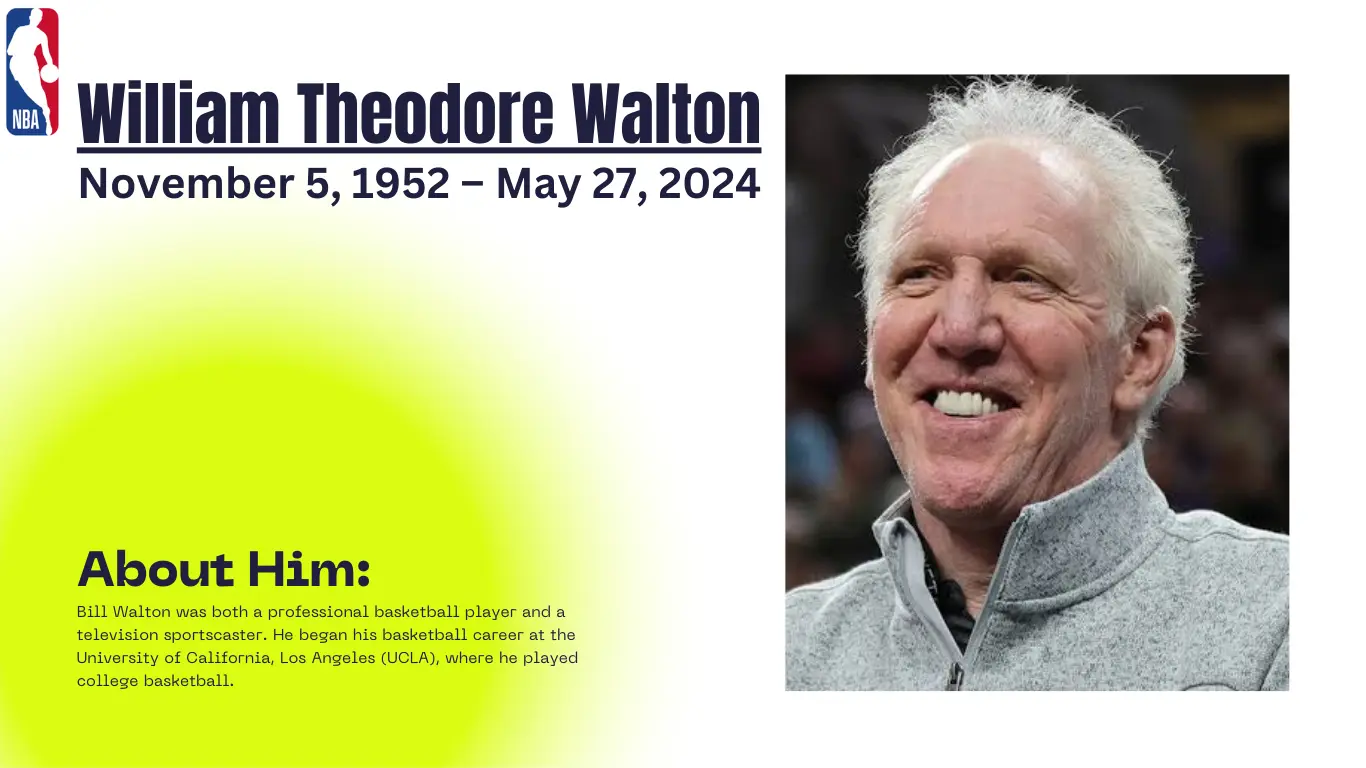
Basketball legend Bill Walton, known for his stellar career at UCLA. Where he won two national titles, and his success in the NBA with championships in Portland and Boston, has passed away at the age of 71.
The NBA shared the sad news, revealing that Walton had been battling cancer for some time. He passed away while surrounded by his loved ones. In addition to his achievements on the court, Walton was renowned for his colorful commentary, adding his unique perspective to basketball broadcasts.
NBA Commissioner Adam Silver said, Bill Walton was really special. Silver praised Walton for changing how people saw the center position in basketball. At UCLA, Walton’s amazing skills made him a star player. He went on to win awards like NBA regular season and Finals MVP. He also earned two NBA championships and named to the NBA’s 50th and 75th Anniversary Teams.
Walton played college basketball for coach John Wooden at UCLA. He was incredibly successful, winning three straight national player of the year awards from 1972 to 1974. During his time there, UCLA won NCAA championships in 1972 and 1973 and had a record breaking 88-game winning streak.
In the NBA, he was the first overall pick in the 1974 draft and played for the Portland Trail Blazers. In 1977, he led the Trail Blazers to an NBA championship and named the NBA Finals Most Valuable Player.
The following year, Walton won the NBA Most Valuable Player (MVP) award and another championship with the Trail Blazers, earning another Finals MVP title.
Unfortunately, Walton faced many challenges in his professional basketball career due to several foot injuries that needed lots of surgeries. He had to take a break from playing during the 1978–79 season. Later, he joined the Clippers but struggled with injuries during his four seasons there.
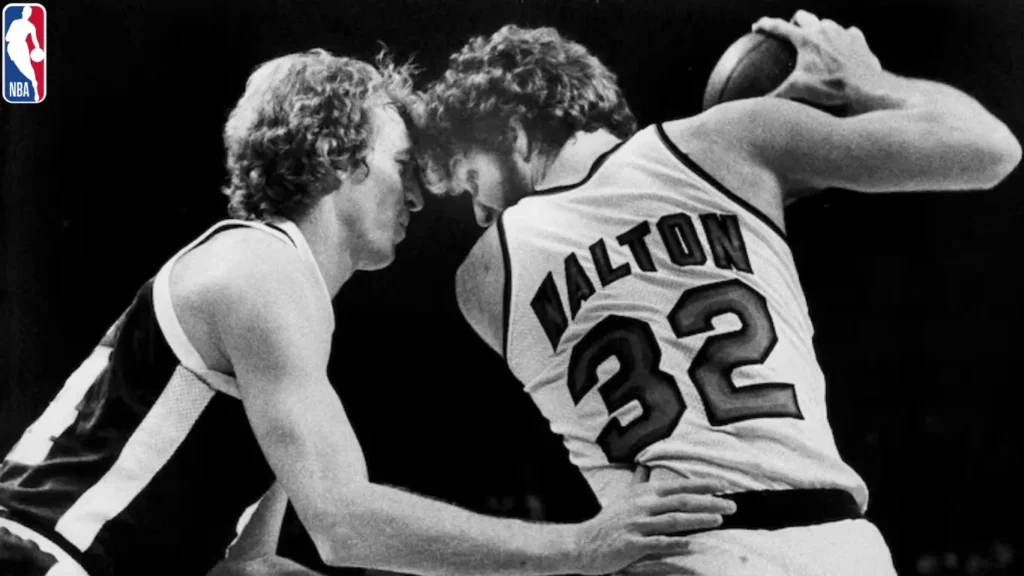
However, his career saw a revival when he played for the Celtics towards the end. Even though he mostly played as a backup to Robert Parish, Walton’s efforts earned him the NBA Sixth Man of the Year Award in the 1985–86 season. He won his second championship with the Celtics that same year.
Despite his setbacks, Walton’s contributions to basketball recognized when he named to the NBA’s 50th and 75th anniversary teams. He also honored with inductions into the Naismith Memorial Basketball Hall of Fame in 1993 and the National Collegiate Basketball Hall of Fame in 2006.
Achievements in Championships and National Records:
Walton faced challenges but led his high school team, Helix, to an impressive 49 consecutive wins during his two varsity seasons. Helix clinched the California Interscholastic Federation (CIF) Championship in both 1969 and 1970, with outstanding records of 29–2 and 33–0 respectively.
Graduating at around 6 feet 11 inches tall, Walton was a dominant force on the court. Which averaging 29 points and an incredible 25 rebounds per game during his senior year. In his final season, he set a national record by making 384 out of 490 shot attempts, a remarkable 78.3 percent success rate.
Additionally, Walton’s 825 rebounds that season rank third all time, and his average of 25.0 rebounds per game stands as the seventh best in history.
In 1970, Walton gained national attention when he featured in Faces in the Crowd in the January 26 issue of Sports Illustrated. Reflecting on this recognition, Walton expressed his gratitude, calling it a dream come true.
Walton credited his high school team, Helix, for laying the foundation of his basketball journey. Which emphasizing the privilege of playing alongside legendary teammates such as Monroe Nash, Wilbur Strong, Phil Edwards, and Bruce Menser. Bill Walton humbly remarked that he felt like the luckiest person alive to have been part of such a special team.
Hall of Fame Coach Denny Crum, who was an assistant coach at UCLA under John Wooden, assigned to watch Walton play. Crum saw Bill Walton for the first time in 1968 when he was still in high school.
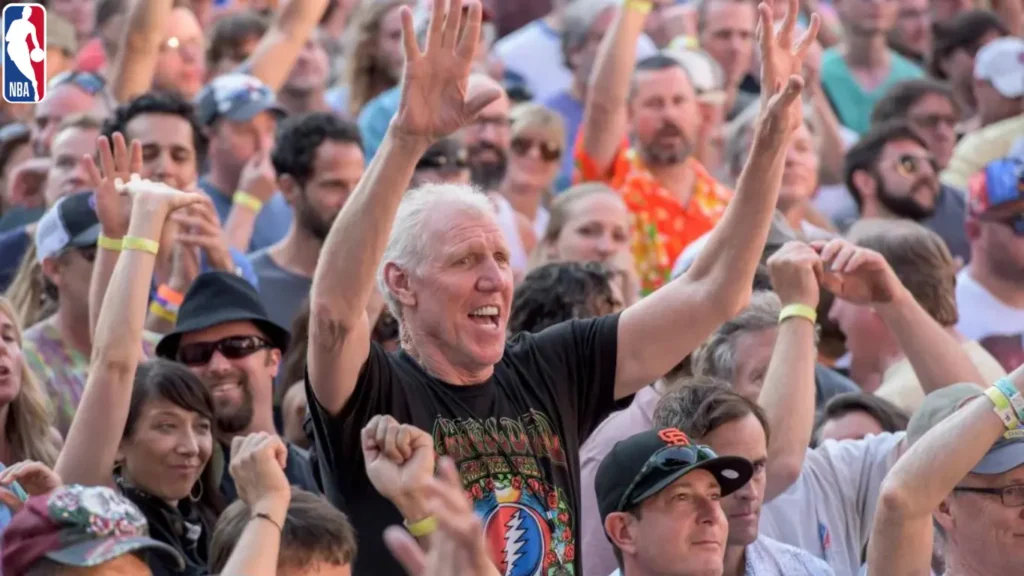
Initially unsure about Bill Walton’s abilities, Crum decided to scout him anyway. After watching him play, Crum was thoroughly impressed and returned to Coach Wooden with high praise. He told Wooden that Walton was the best high school player he had ever seen. This recommendation from Crum played a significant role in Walton’s journey to UCLA and eventual basketball success.
Bill Walton played basketball for UCLA under Coach Wooden from 1971 to 1974. His older brother Bruce was also at UCLA, playing football a year ahead of Bill. During Walton’s time at UCLA, he achieved remarkable success, leading the Bruins to two consecutive perfect 30–0 seasons. Which contributing to their NCAA men’s basketball record 88-game winning streak.
This streak was part of a longer personal winning streak for Bill Walton, spanning almost five years and totaling 142 games. From the middle of his junior year in high school to the middle of his senior year in college. Walton’s teams his high school team, UCLA freshman team (freshmen couldn’t play varsity at the time), and UCLA varsity team didn’t lose a single game. It was an extraordinary period of dominance for Walton and his teams.
NBA & College Awards:
Bill Walton’s illustrious career was adorned with numerous awards and honors, highlighting his exceptional talent and contribution to basketball. From his collegiate dominance at UCLA to his triumphs in the NBA.
NBA
- 2× NBA champion (1977, 1986)
- NBA Finals MVP (1977)
- NBA Most Valuable Player (1978)
- 2× NBA All-Star (1977, 1978)
- All-NBA First Team (1978)
- All-NBA Second Team (1977)
- 2× NBA All-Defensive First Team (1977, 1978)
- NBA Sixth Man of the Year (1986)
- Named one of the 50 Greatest Players in NBA History
- Named to the NBA 75th Anniversary Team
College
- 2× NCAA champion (1972–1973)
- 2× NCAA Final Four Most Outstanding Player (1972, 1973)
- 3× Naismith College Player of the Year (1972–1974)
- 3× USBWA Player of the Year (1972–1974)
- 3× Adolph Rupp Trophy (1972–1974)
- 3× Helms Foundation College Player of the Year (1972, 1973, 1974)
- 3× Sporting News College Player of the Year (1972–1974)
- 2× AP College Player of the Year (1972, 1973)
- 3× Consensus first-team All-American (1972–1974)
- 3× First-team All-Pac-8 (1972–1974)
Walton’s Career in the Media:
At the age of 28, Bill Walton overcame a stuttering problem with the guidance of Hall of Fame broadcaster Marty Glickman. Their conversation at an event sparked a transformation for Walton. Reflecting on his journey, Walton shared, I’m a stutterer. I struggled to speak to anyone and lived a mostly solitary life.
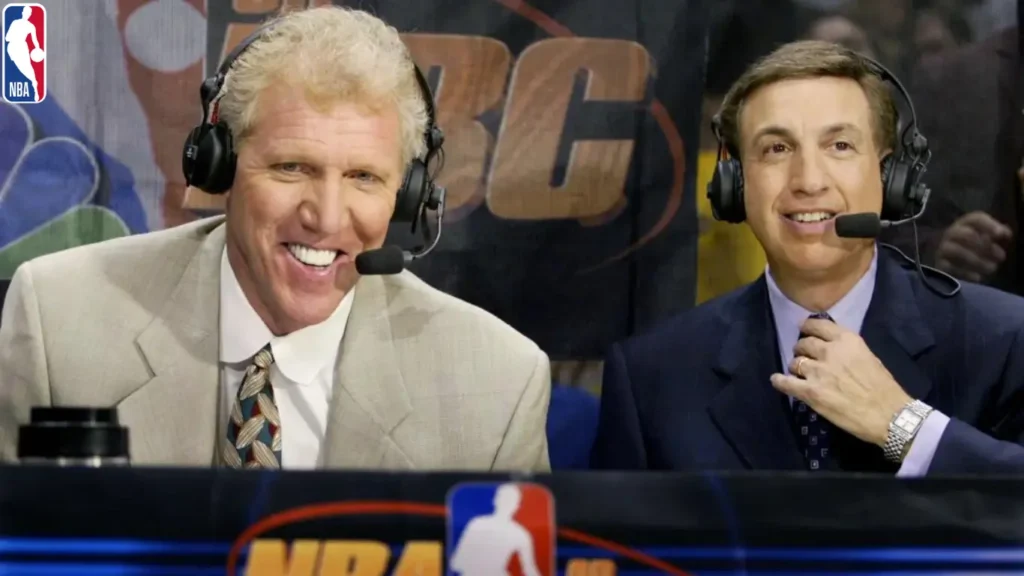
But once I stepped onto the court, I found my voice. In everyday life, though, I was extremely self conscious about my appearance and speech impediment. He described himself as shy, with red hair, a big nose, freckles, and what he felt was a nerdy appearance.
However, at 28, he learned how to speak fluently, which he considers his greatest accomplishment. He humorously added, It’s become my greatest accomplishment of my life and everybody else’s biggest nightmare.
After retiring from playing basketball, Walton transitioned into a career as a basketball color commentator. He worked for various networks including CBS, NBC, the Los Angeles Clippers, and ABC/ESPN.
However, after 19 years in broadcasting, Walton had to leave ESPN in November 2009 due to back problems stemming from a college injury at UCLA. Following back surgery, he returned to broadcasting as a part time commentator for the Sacramento Kings for the 2010–11 and 2011–12 seasons. In July 2012. Walton announced his full time return to broadcasting as a game analyst for Pac-12 conference basketball coverage, working with both ESPN and the Pac-12 Network.
Walton often teamed up with Dave Pasch to cover Pac-12 games, while for national NBA games, he was typically paired with Steve Snapper Jones. Their on-air banter was characterized by lively exchanges and contrasting viewpoints.
Known for his colorful commentary style, Walton frequently used catchphrases and exaggerated statements during broadcasts. In 2003, ESPN aired a TV series titled Bill Walton’s Long Strange Trip, which featured Walton as both subject and star.
During one memorable broadcast, while commentating on a game between the Oregon Ducks and USC Trojans, Walton shared insights about a speech given by Bob Dylan at MusiCares. ESPN even prepared graphics showcasing Dylan’s career highlights to complement Walton’s commentary.
During a broadcast of a Washington–Oregon game in January 2019 alongside Dave Pasch, Walton casually mentioned his appearance in the film Ghostbusters, which was filmed in 1984. Pasch questioned Walton about this claim throughout the game, seeking specifics about Walton’s role, but Walton remained elusive, refusing to provide further details. However, research later confirmed Walton’s assertion.
Additionally, Walton hosted his own satellite radio show called One More Saturday Night, named after a song by the Grateful Dead. The show aired on Sirius Radio’s Jam On and XM Radio’s Grateful Dead channel, showcasing Walton’s passion for music alongside his basketball expertise.
In recognition of his broadcasting prowess, Walton received an Emmy Award for Best Live Sports Television Broadcast in 2001. Furthermore, in 2018, he was honored with the CoSIDA Dick Enberg Award for his outstanding contributions to sports broadcasting.
-
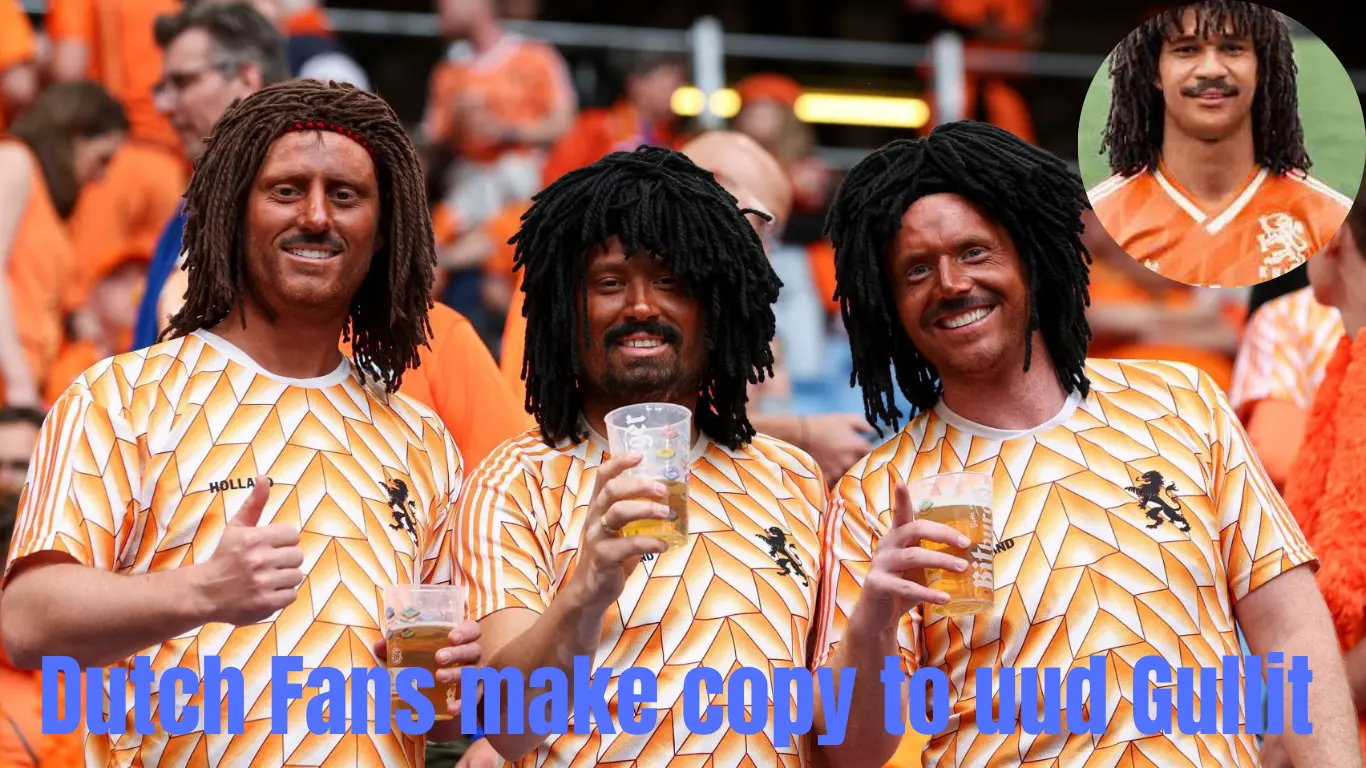
 Soccer5 months ago
Soccer5 months agoDutch Fans in Blackface to Imitate Ruud Gullit, One Agrees to Stop
-

 Soccer5 months ago
Soccer5 months agoEx Glamour Model Says Party with England Team Before Euros
-

 News7 months ago
News7 months agoDubai Flood, Rain Turns Desert to Aquarium🌧️🐠
-
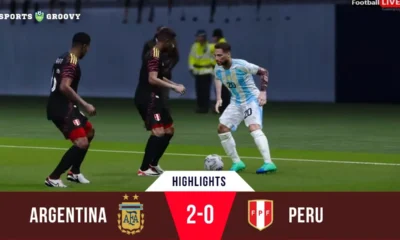
 Soccer5 months ago
Soccer5 months agoArgentina vs Peru 2-0 Highlights & All Goals Copa America 2024
-
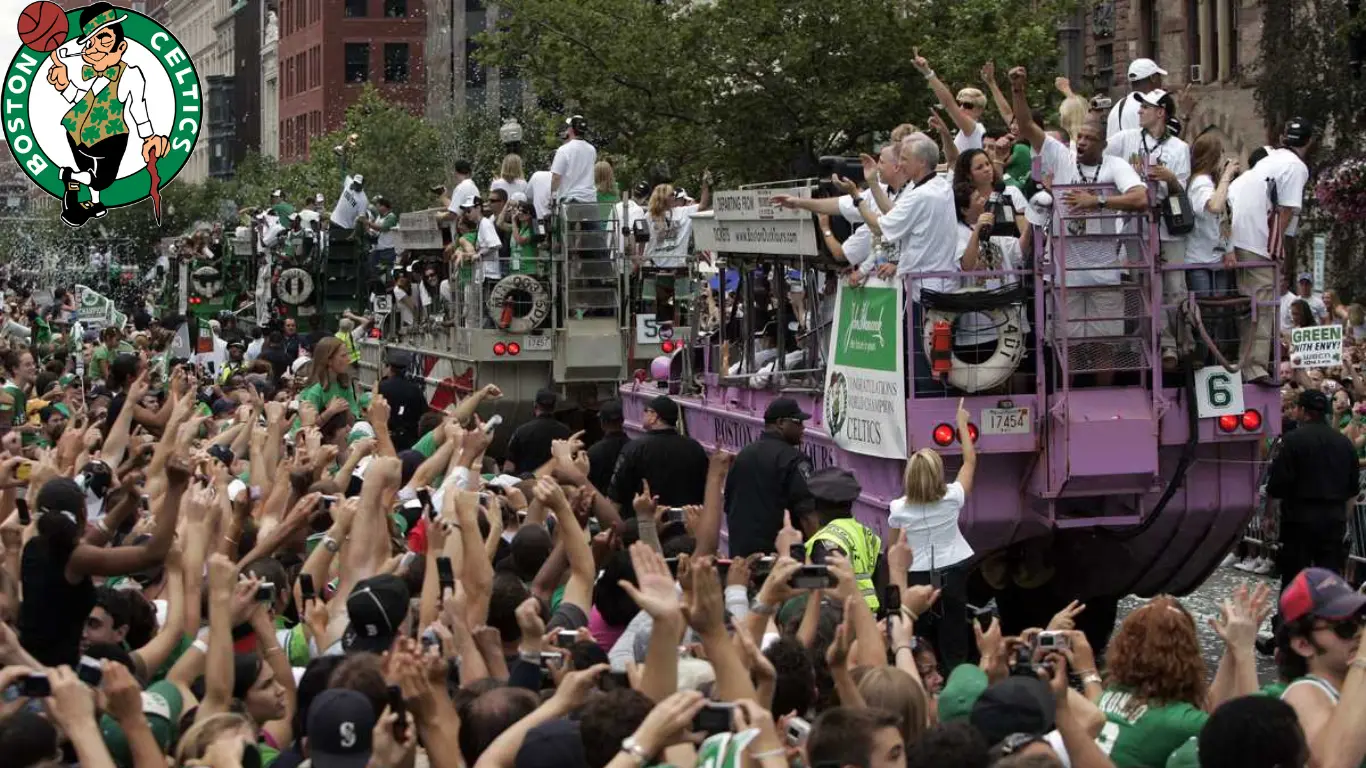
 NBA5 months ago
NBA5 months agoCelebrate with the Boston Celtics: Parade and Traffic Updates
-
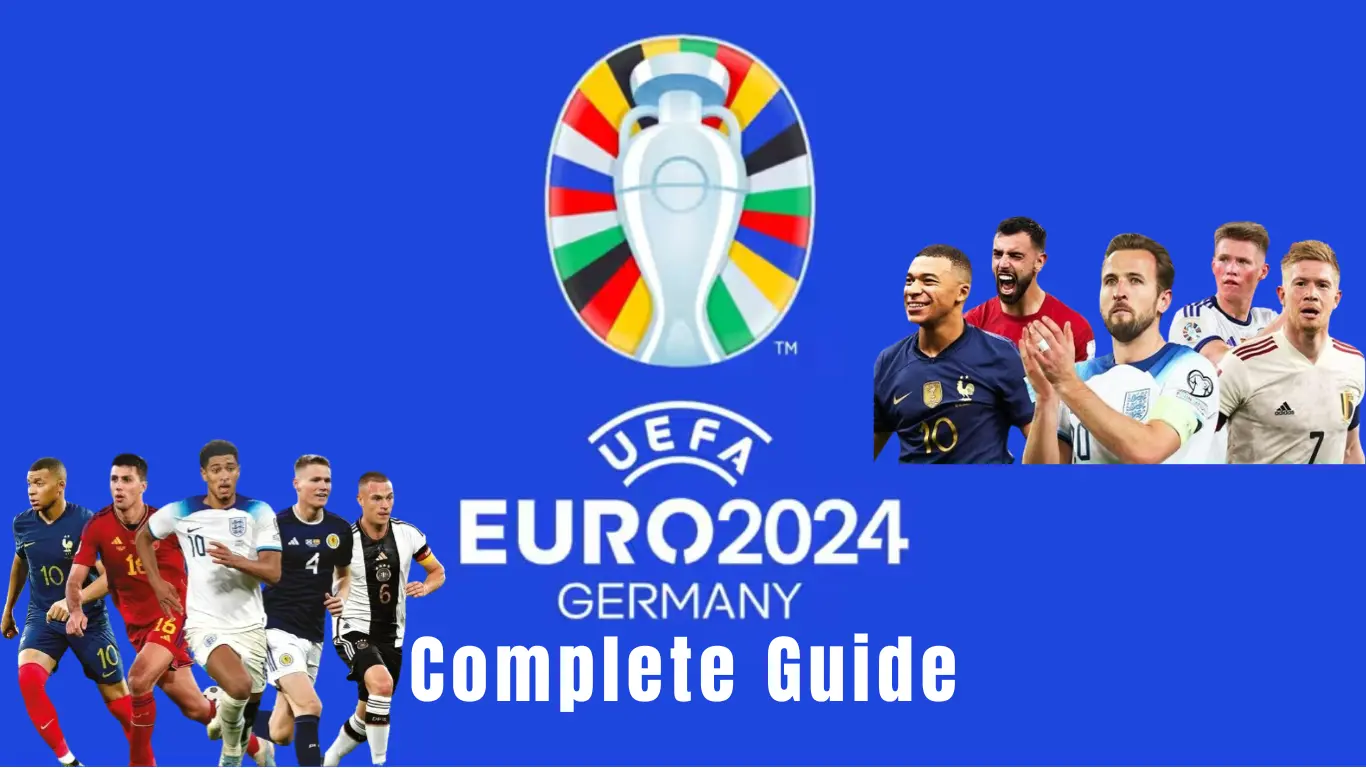
 Soccer5 months ago
Soccer5 months agoUEFA EURO 2024: Essential Guide and Key Information
-
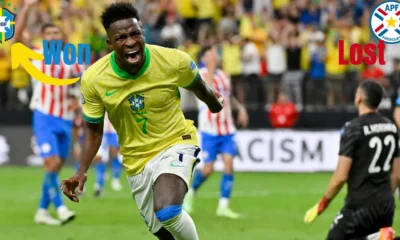
 Soccer5 months ago
Soccer5 months agoVinicius Jr Scores Two Goals in Brazil’s Win Vs Paraguay in Copa America 2024
-
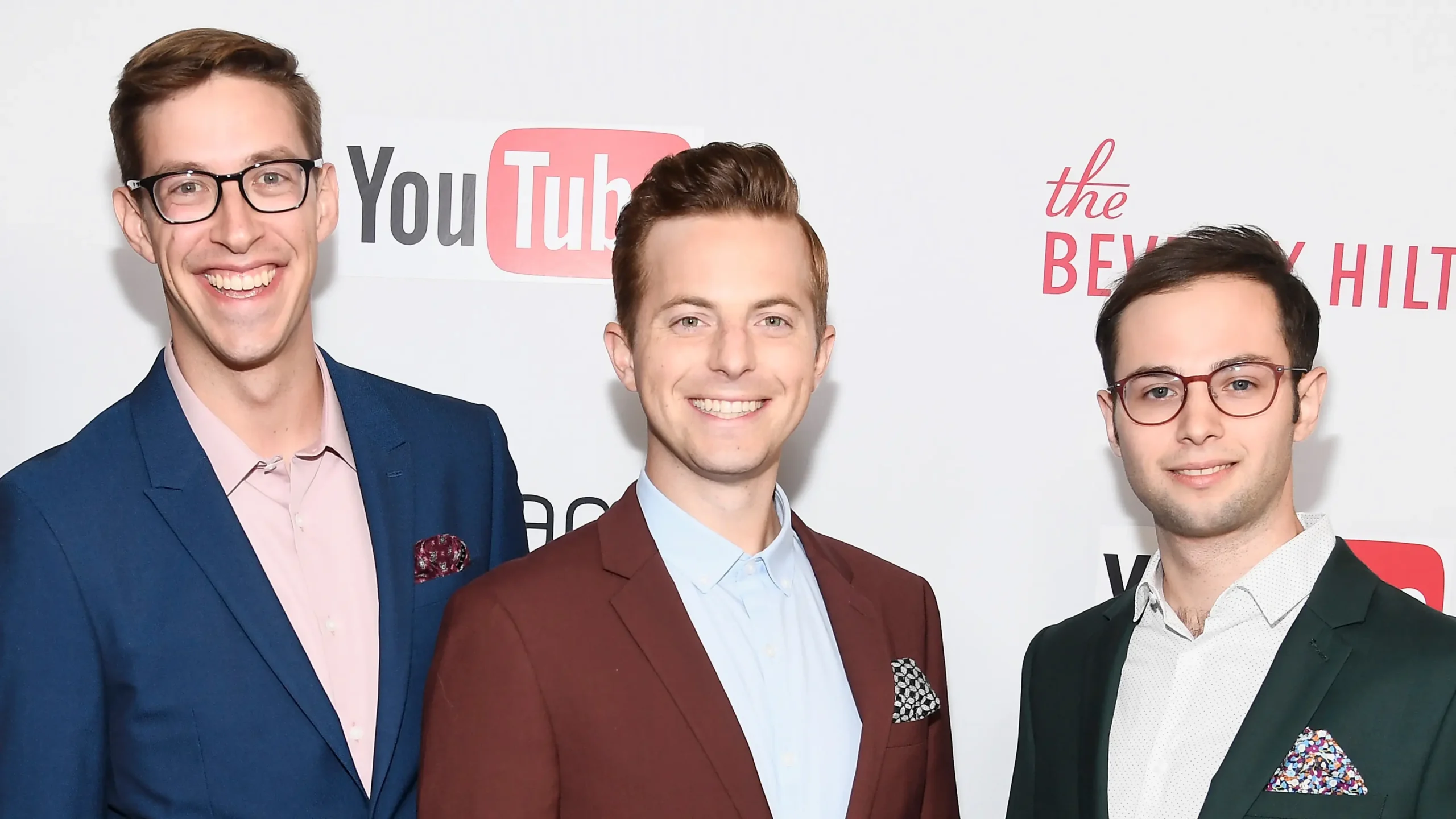
 Entertainment6 months ago
Entertainment6 months agoThe Try Guys’ Journey From Four to Two


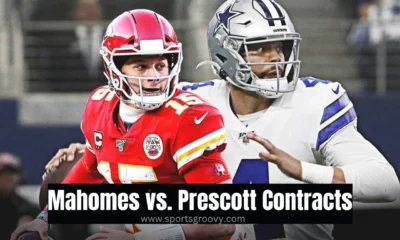

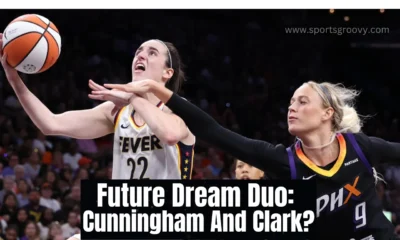

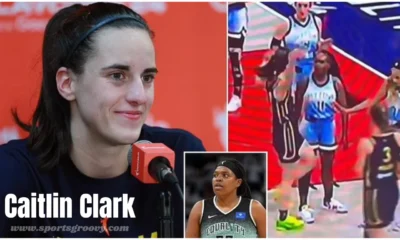

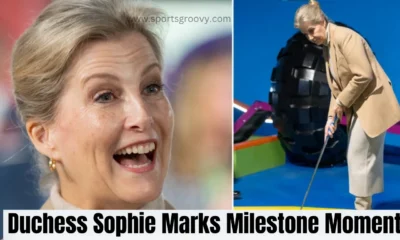



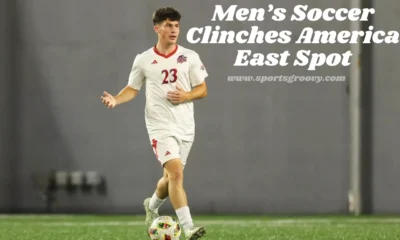

Pingback: Teen TV Star Mamie Laverock Critically Injured in Shocking Balcony Fall - Sports Groovy